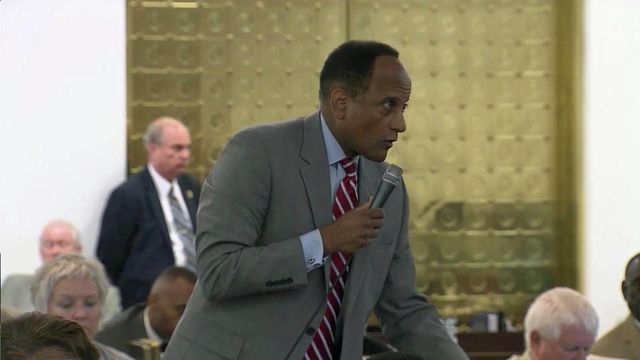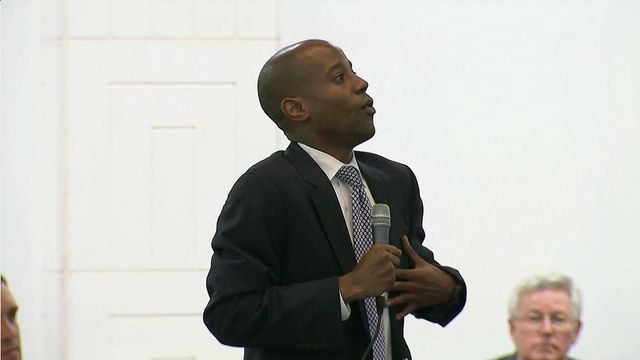Public monuments bill heading to McCrory
A bill that would require legislative approval to move public monuments, including Confederacy-related memorials, received final House approval Tuesday despite pleas from black lawmakers that timing of the proposal was inappropriate.
Posted — UpdatedAfter the 70-39 vote, Senate Bill 22, dubbed the Historic Artifact Management and Patriotism Act, now heads to Gov. Pat McCrory, who will have 10 days to sign it, veto it or allow it to become law without his signature.
The bill would prohibit the permanent removal of any "monument, memorial, plaque, statue, marker, or display of a permanent character that commemorates an event, a person, or military service that is part of North Carolina's history" from public property unless the General Assembly passes a law to allow for the removal.
The measure passed the Senate unanimously in April, but the House debate comes less than five weeks after a white supremacist gunned down nine people at a historic black church in Charleston, S.C. Since then, South Carolina has removed a Confederate battle flag from its capitol grounds, and other states and businesses have debated the flag and other symbols linked to the rebel cause.
Rep. Garland Pierce, D-Scotland, chided House Speaker Tim Moore during Tuesday's 90-minute debate for even taking up the bill this week.
"The timing is just bad," Pierce said. "It's just very divisive. I wish we could have waited to deal with this bill."
Moore, R-Cleveland, responded that the bill is the same as it was when the Senate approved it three months ago. If the House had debated it in early June, the proposal might have similarly sailed through, he said, adding that waiting might not change the tenor of the debate.
"The bill has somehow taken on the life of that," Moore said, referring to the Charleston shooting. "We're all victims of circumstances."
Rep. Nelson Dollar, R-Wake, noted that the bill was intended to preserve memorials to North Carolina veterans and includes sections on how to handle U.S. and state flags.
Despite that, and although the bill covers all public monuments, much of the debate Monday night and Tuesday centered on the dozens of memorials to people tied to the Confederacy in counties across North Carolina. Three such monuments have been vandalized in the Triangle in recent weeks, including the Confederate Women's Monument at the State Capitol, which was spray-painted overnight.
Rep. John Blust, R-Guilford, said opposition to the bill is "based on a misreading of history." The memorials need to be viewed in context, he said, and the people and events they commemorate remembered for their role in creating the North Carolina that exists today.
"We should embrace history, not forget it," Blust said. "We have to preserve history, even the bad parts, to learn from it and grow from it."
Islamic State forces go into captured towns and destroy the local historical artifacts, he noted.
Rep. Nathan Baskerville, D-Vance, told his House colleagues that, while he respects state history and their individual family histories, Confederate memorials represent oppression to him and his family, as well as to most blacks in North Carolina.
"You can call it whatever you want to call it," Baskerville said. "Brown people see oppression. Brown people see Jim Crow. Brown people see slavery."
The state chapter of the NAACP called on McCrory to veto the bill.
"The urgency with which the majority of our state representatives raced to protect Confederate monuments is appalling and shameful, given that hundreds of thousands of North Carolinians live without health insurance due to the General Assembly and Governor's refusal to expand Medicaid, given that thousands of North Carolinians need a living wage, that teachers need job security, that public schools need adequate funding (and) that our environment needs adequate protections," state NAACP President Rev. William Barber said in a statement.
• Credits
Copyright 2024 by Capitol Broadcasting Company. All rights reserved. This material may not be published, broadcast, rewritten or redistributed.






